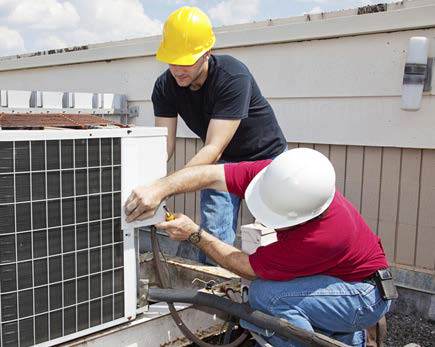Why Does Your Commercial HVAC Repair Matter More Than You Think?
When your commercial HVAC system breaks down, every minute of downtime translates into discomfort for occupants, lost productivity, and mounting energy costs. Commercial HVAC repair isn’t just about fixing broken equipment—it’s about maintaining a comfortable, efficient environment that keeps your business running smoothly. Whether you’re managing data centers that require precise temperature control or office buildings where occupant comfort directly impacts performance, understanding the critical role of commercial HVAC repair can save you thousands in emergency costs and prevent disruptions to your operations.
Understanding Commercial HVAC Systems and Their Repair Needs
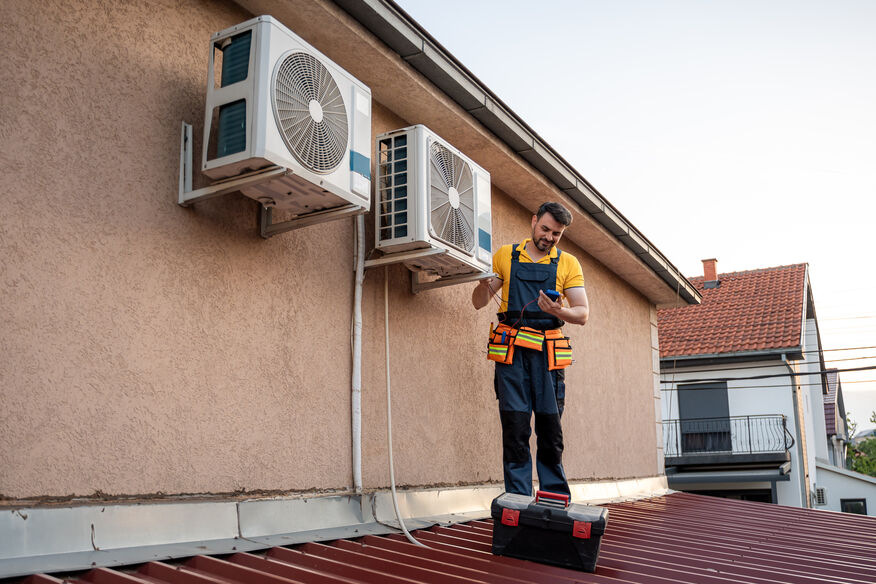
Commercial HVAC systems differ significantly from residential units in scale, complexity, and performance requirements. These sophisticated systems incorporate advanced air handling units, heat pumps, and automation technology designed to maintain optimal conditions across thousands of square feet. Unlike home systems, commercial HVAC repair demands specialized knowledge of industrial-grade equipment, building automation systems, and compliance with strict commercial building codes.
The engineered components in commercial solutions include rooftop units, chillers, boilers, and variable refrigerant flow systems that work together to deliver comfortable air throughout your facility. When any component fails, the cascading effects can impact entire buildings, making prompt repair essential for maintaining occupant comfort and operational continuity.
Key Components That Require Regular Attention
| Component | Function | Common Repair Issues |
| Air Handling Units | Distribute conditioned air throughout the building | Motor failures, belt wear, filter clogs |
| Heat Pumps | Provide both heating and cooling efficiently | Refrigerant leaks, compressor issues, sensor failures |
| Rooftop Units | House major HVAC components in accessible locations | Weathering damage, electrical problems, and component wear |
| Building Automation Systems | Control temperature, airflow, and energy efficiency | Software glitches, sensor malfunctions, and connectivity issues |
Why Energy Efficiency Makes Commercial HVAC Repair a Smart Investment
Energy efficiency stands at the forefront of modern commercial HVAC repair priorities. Commercial buildings account for approximately 18% of total U.S. primary energy use, with heating and cooling representing significant portions of that consumption. When your commercial HVAC equipment operates below peak efficiency due to neglected repairs, energy costs skyrocket while performance deteriorates.
Key energy efficiency benefits of timely commercial HVAC repair:
- Professional technicians identify hidden inefficiencies during repair visits—worn compressor bearings, dirty coils, or misaligned air handling components can reduce system efficiency by 15-30%, and modern commercial solutions with real-time monitoring technology alert facility managers before minor problems escalate into costly failures
- Proactive repair strategies optimize energy consumption while reducing your facility’s carbon footprint, delivering long-term sustainability benefits alongside immediate cost savings through improved heating and cooling performance across all building zones
The Critical Role of Routine Maintenance in Preventing Emergency Repairs
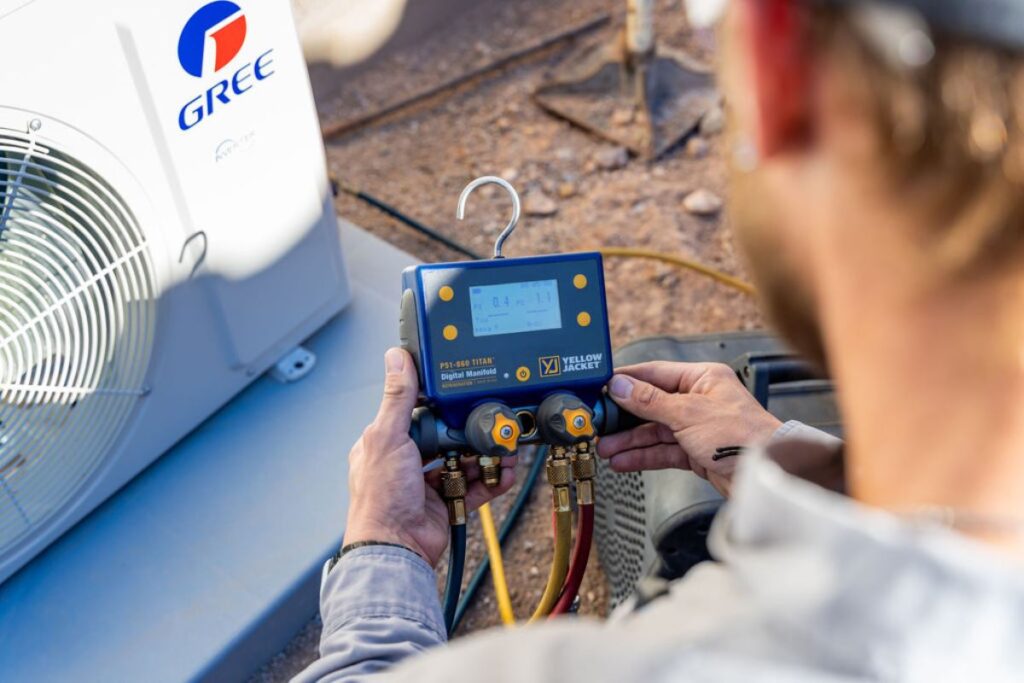
Routine maintenance serves as your first line of defense against expensive emergency commercial HVAC repair situations. Preventive service visits allow qualified technicians to inspect, clean, and adjust system components before failures occur, extending equipment lifespan and preventing catastrophic breakdowns.
During maintenance visits, technicians examine refrigerant levels, test electrical connections, lubricate moving parts, and verify that all safety controls function properly while also assessing how often commercial HVAC filters should be changed to maintain indoor air quality.
Essential maintenance program components:
- Comprehensive service schedules include quarterly inspections of all major components and air handling equipment, annual cleaning of coils and ventilation systems with fresh air intake verification, and bi-annual testing of heating and cooling performance across all zones
- Cost-effective preventive approach typically costs 40-60% less than reactive repair strategies, with businesses prioritizing preventive care experiencing fewer emergency service calls, lower energy bills, and extended equipment life through proper documentation
How Data Centers Require Specialized Commercial HVAC Repair Expertise
Data centers represent the most demanding commercial HVAC applications, where temperature and humidity control directly impact equipment reliability and data integrity. These facilities require 24/7/365 cooling regardless of outdoor conditions, making commercial HVAC repair expertise absolutely critical. A single system failure can cause server overheating, data loss, and potentially millions in damages.
Critical data center HVAC requirements:
- Stringent environmental controls require cooling systems that account for 30-40% of total energy consumption, precise temperature control within ±2°F, humidity management between 40-60%, and redundant systems providing backup capacity during maintenance
- Specialized repair expertise becomes critical when issues arise, as every minute of inadequate cooling increases equipment damage risk, while fresh air economizers require careful filtration to protect sensitive equipment and reduce costs
Data Center HVAC Considerations
| Requirement | Standard Office | Data Center |
| Temperature Tolerance | ±5°F | ±2°F |
| Uptime Requirement | 99% | 99.99%+ |
| Cooling Load per Sq Ft | 5-10 watts | 100-300+ watts |
| Redundancy Level | N (single path) | N+1 or 2N (full redundancy) |
Selecting the Right Team for Your Commercial HVAC Repair Needs
Choosing qualified technicians for commercial HVAC repair significantly impacts both immediate results and long-term system performance. Professional HVAC service providers bring industry-leading expertise, specialized tools, and extensive experience with commercial applications that help identify problems quickly and implement lasting solutions. Look for service providers with specific commercial experience, certified technicians holding NATE credentials, and proven track records.
What to look for in commercial HVAC repair companies:
- Professional qualifications include years of experience with commercial installations, 24/7 emergency response capability, references from similar facilities, comprehensive service agreements with preventive maintenance schedules, and access to original equipment manufacturer (OEM) parts.
- Partner with proven experts like Callidus Air, who specialize in comprehensive commercial solutions, whether you require routine maintenance, emergency repairs, or complete HVAC system upgrades.
Understanding Commercial HVAC Repair Costs and Budget Planning
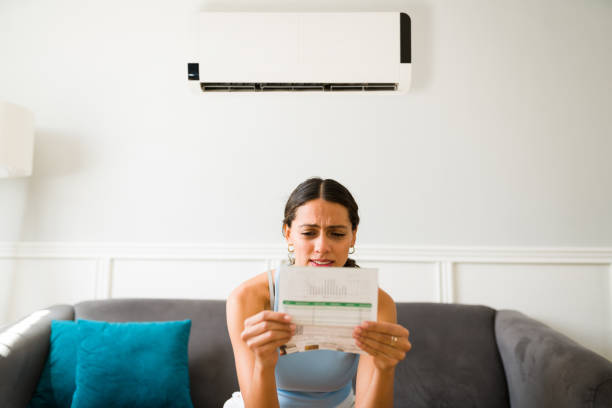
The cost to repair commercial HVAC systems varies dramatically based on equipment type, problem severity, and facility requirements. Unlike residential repairs, commercial HVAC repair expenses can range from a few hundred dollars for minor adjustments to tens of thousands for major component replacements. Common scenarios include compressor replacement ($3,000-$8,000), air handler motor replacement ($500-$2,000), and refrigerant leak repair ($500-$3,000).
Smart budgeting strategies for commercial HVAC repair:
- Emergency service premiums typically carry rates 50-100% higher than scheduled maintenance visits, emphasizing the value of preventive care and comprehensive service agreements
- Replacement considerations should factor in equipment age and efficiency rating, with experts recommending replacement when repair costs exceed 50% of replacement value, as modern systems offer substantially better efficiency that can offset HVAC replacement costs
| Repair Type | Average Cost | Typical Timeline | Energy Impact |
| Minor Component Replacement | $500-$2,000 | 2-4 hours | Minimal improvement |
| Major System Repair | $3,000-$10,000 | 1-3 days | 10-20% improvement |
| Partial System Replacement | $10,000-$30,000 | 3-7 days | 20-30% improvement |
| Complete System Upgrade | $50,000-$200,000+ | 2-4 weeks | 30-50% improvement |
Maximizing Occupant Comfort Through Proactive Commercial HVAC Repair
Occupant comfort directly impacts productivity, employee satisfaction, and customer perceptions of your business. Research shows that workplace productivity is highest at temperatures around 21-22°C (70-72°F), and performance decreases with temperatures above 23-24°C (73-75°F). Commercial HVAC repair strategies that prioritize comfort create tangible business value beyond just maintaining functional equipment.
Keys to maintaining optimal occupant comfort:
- Effective heating and cooling systems require balanced air distribution, appropriate humidity levels, and elimination of hot or cold spots, with common comfort complaints signaling underlying issues like blocked vents or zoning problems that skilled technicians identify during repair visits
- Strategic workplace environment management through proper HVAC maintenance directly affects employee retention and organizational performance, making understanding what HVAC systems do essential for facility managers
The Sustainability Advantage of Professional Commercial HVAC Repair
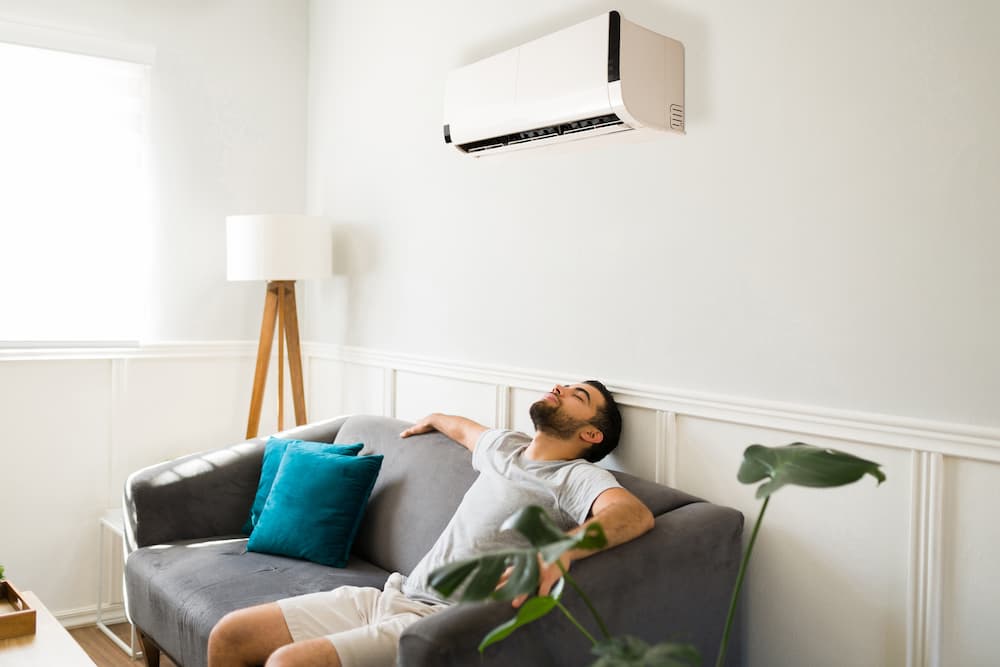
Sustainability initiatives are increasingly driving business decisions, and properly maintained commercial HVAC systems play a crucial role in achieving environmental goals. Commercial HVAC repair that optimizes system performance reduces energy consumption, lowers greenhouse gas emissions, and extends equipment life. Modern refrigerants used in commercial systems have significantly lower global warming potential than older compounds.
Sustainability benefits of professional commercial HVAC service:
- Environmental compliance and efficiency involve professional technicians following EPA regulations for refrigerant recovery while identifying opportunities to upgrade to more efficient components
- Strategic repairs and upgrades extend system life while maintaining efficiency standards, reducing waste, conserving manufacturing resources, and supporting sustainability commitments rather than prematurely replacing functional equipment
Making Smart Decisions About Commercial HVAC Repair vs. Replacement
One of the most challenging decisions facility managers face involves determining when to repair existing equipment versus investing in replacement systems. Commercial HVAC equipment typically lasts 15-20 years with proper maintenance. Units approaching this age warrant serious consideration for replacement, particularly if they require frequent repairs.
Repair vs. replacement decision factors:
- Age and repair history analysis should calculate annual commercial HVAC repair costs against replacement value—if costs exceed 15-20% of replacement cost, replacement typically offers better long-term value
- Modern efficiency advantages offer dramatic improvements, with energy savings from new equipment offsetting HVAC installation costs with ductwork over time, while providing warranties that eliminate repair expenses
How to Clean and Maintain Your Commercial HVAC System Between Repairs
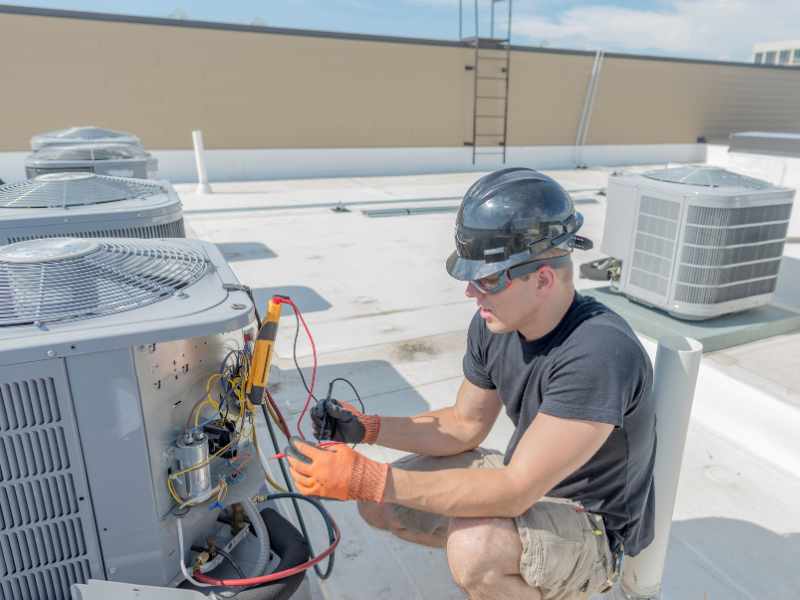
While professional commercial HVAC repair requires qualified technicians, facility managers can implement simple maintenance practices that reduce service needs and extend equipment life. Cleaning your HVAC system starts with the most accessible components—regularly replacing filters, clearing debris from outdoor units, and ensuring vents remain unobstructed.
Safe facility staff maintenance tasks vs. professional requirements:
- Basic maintenance activities that facility staff can safely perform include visual inspections, monitoring thermostat readings for unusual variations, listening for unusual noises, and checking condensate drain lines
- Professional service requirements involve tasks requiring refrigerant handling, electrical work, or access to sealed components that should always be left to licensed professionals, as understanding what a compressor is in HVAC systems helps managers appreciate component complexity
Conclusion: Securing Your Commercial HVAC System’s Future Performance
Your commercial HVAC system represents a critical infrastructure investment that directly impacts business operations, occupant satisfaction, and operational costs. A strategic approach to commercial HVAC repair and maintenance protects this investment while ensuring your facility maintains optimal conditions year-round. By combining routine preventive maintenance, prompt attention to emerging issues, and partnerships with qualified professionals, you minimize downtime and extend equipment life.
Ready to optimize your commercial HVAC system’s performance and reliability?
Contact the experts at Callidus Air today to discuss your specific needs and discover how professional service and strategic maintenance can transform your facility’s comfort, efficiency, and operational costs.
Frequently Asked Questions About Commercial HVAC Repair
As you search for the best options to meet your commercial HVAC needs, you may find yourself with several questions. This FAQ section provides a comprehensive collection of answers to help you find the right way to maintain and repair your systems for tomorrow and beyond.
How often should commercial HVAC systems receive professional maintenance?
Most commercial HVAC systems benefit from quarterly maintenance visits, with additional seasonal tune-ups before heating and cooling seasons begin. High-utilization facilities like data centers may require monthly service to maintain optimal performance and prevent unexpected breakdowns.
What are the most common causes of commercial HVAC system failures?
The leading causes include neglected routine maintenance, dirty or clogged filters, refrigerant leaks, electrical problems, and worn mechanical components like belts and bearings. Many of these issues are preventable through regular professional service.
How can I reduce emergency commercial HVAC repair costs?
Implementing a comprehensive preventive maintenance program dramatically reduces emergency repair needs by addressing problems before they escalate. Service agreements with qualified providers typically include priority emergency response and reduced rates.
When should I replace rather than repair my commercial HVAC system?
Consider replacement when your system is more than 15 years old, requires frequent repairs costing more than 50% of replacement value annually, or operates significantly less efficiently than modern equipment. Calculate the payback period based on energy savings.
What qualifications should I look for in a commercial HVAC repair company?
Seek providers with extensive commercial experience, relevant technician certifications (NATE, manufacturer-specific), proper licensing and insurance, 24/7 emergency availability, and strong references from similar facilities.

